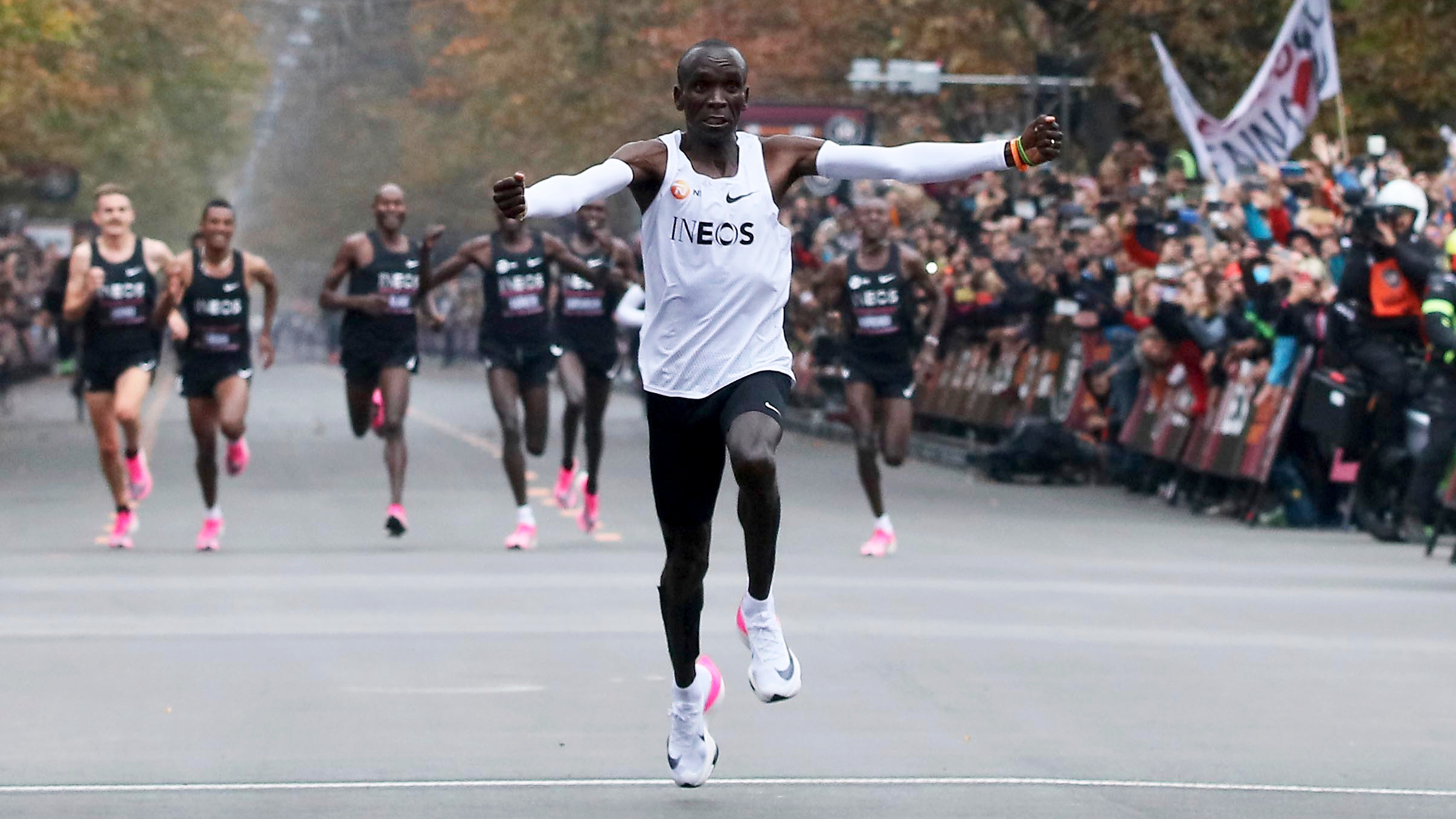Could anyone run a marathon in under two hours? We've waited a long time for the answer to that question and now we have it.
Legendary Kenyan marathonist Eliud Kipchoge has once again redefined what humans are capable of, making history in Vienna on Saturday with the first-ever sub two-hour marathon in a time of one hour 59 minutes and 40 seconds.

Marathon runner Eliud Kipchoge from Kenya celebrates becoming the first human ever to run a marathon under two hours in Vienna, Austria, on Saturday, 12 October 2019 (AP Photo/Ronald Zak)
Marathon runner Eliud Kipchoge from Kenya celebrates becoming the first human ever to run a marathon under two hours in Vienna, Austria, on Saturday, 12 October 2019 (AP Photo/Ronald Zak)
The incredible feat will not count as an official record because it was not part of an open event but his time was hailed by fellow athletes and sport experts as a massive achievement and a sign of things to come.
It's a breakthrough comparable to the first sub four minute mile run by Roger Bannister in 1954.
See how the men's marathon record times have reduced since the modern Olympics started in 1896.
00:37

Throughout marathon history, there have been numerous attempts to break human barriers. While the Ancient Olympics can be dated back to 776 BC, the first marathon ever recorded took place in 1896, during the Summer Olympics in Greece. It was the first international Olympic Games held in modern history.
The first men's long-distance race was back then won by Spyridon Louis, who completed the 26-mile foot race in 2:58:50.
Over the following three decades the time it took male runners to complete the race decreased by half an hour. In 1932, Juan Carlos Zabala from Argentina finished the race in 2:31:36. In 1960, Ethiopian runner Abebe Bikila arrived at the finish line in 2:15:16.

Ethiopia's Abebe Bikila raises his hands after winning the Olympic marathon race in Rome on 10 September 1960. (AP Photo/File)
Ethiopia's Abebe Bikila raises his hands after winning the Olympic marathon race in Rome on 10 September 1960. (AP Photo/File)
But then, the record time started to decrease more slowly, with Hwang Young-Cho from South Korea winning the gold medal in Barcelona in 1992 in 2:13:23.
In 2000, Gezahegne Abera (Ethiopia) finished the men's marathon in Sydney almost three minutes faster than Hwang. That record was broken in 2008 by Sammy Wanjiru from Kenya, who finished the race in Beijing in 2:06:32.
In 2018, Kipchoge came close to breaking the two-hour record, when he won the long-distance race in Berlin in 2:01:39. The 34-year-old returned this year to make history.
The female marathon world record hasn't been broken since 2003, when Britain's Paula Radcliffe finished the race in London in 2:15:25.
How far could elite athletes go now? Kipchoge said ahead of the race in Vienna: "Any human being can break what other people think it's impossible".
Source(s): AP